Fairly sharing the pains and the gains of energy systems
Natascha van Bommel defended her PhD thesis at the Department of Industrial Engineering and Innovation Sciences on January 25th.
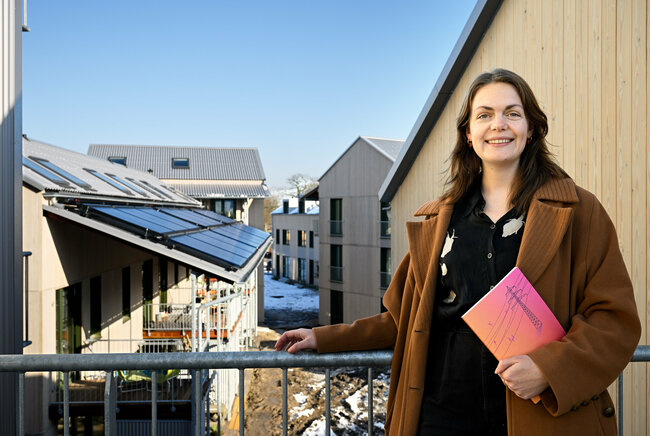
Our energy systems are characterized by two important injustices. First of all, not all people have the same degree of access to these systems (and their advantages). Secondly, the negative consequences of the systems – particularly climate change – are distributed unfairly. TU/e researcher Natascha van Bommel investigated how the current energy transitions can be used to mitigate these injustices.
As the PhD candidate has always had an interest in climate change, she thought it would be a logical step to study energy transitions and how fair (or unfair) they are.
“Ultimately we are all affected by climate change, but for some people the consequences are already very noticeable, while not everyone can reap the benefits of our energy systems,” she says. “Take energy poverty, where people cannot afford such things as heating their homes in winter. Also, not everyone has access to electricity, which is a very important factor in people’s socio-economic development.”
Her PhD research is part of the European MUSE GRIDS project and focuses on the following question: If we stop using fossil fuels and switch to more decentralized energy generation, how will we organize this as fairly as possible?
Her dissertation consists of three parts: theoretical research into the fairness (or unfairness) of energy transitions, a study of several energy communities – citizen cooperatives that generate green energy – in Europe, and empirical research into the improvement of energy system access in the Indian region of Sundarbans.
She originally planned to do a lot of field research in the different communities, but due to the COVID pandemic she was unable to travel for quite some time and was forced to take a much more theoretical approach to her research, which she thinks is unfortunate.
“I really like talking to people on site and see what’s happening with my own eyes.” In Spain, for instance, she saw how passionate people were about the energy community they were setting up. It concerned a neighborhood association in Valladolid that had contacted an energy cooperative to generate more power in the district. “They excitedly showed me on their phones how many kilowatt hours they were generating. Everyone there was super proud of what they had accomplished.”
Long term
For the first, theoretical part, Van Bommel studied the tension between the urgency of climate action and the fairness of energy transitions. “On the one hand we want energy transition to be fast, but if you want to implement it fairly, you’ll have to spend a lot of time considering the social impact. Intuitively, those two things clash,” she says.
In her study, she shows that things are more nuanced. A rapid energy transition doesn’t necessarily lead to more inequality, is one of her conclusions.
“If you don’t implement energy transition fast enough, you can actually create more social inequality in the long term,” she asserts. “You can focus on the here and now, for instance by introducing a very high tax on flying and meat. This means those things will only be available to the happy few, so you’re creating inequality right off the bat. But if you don’t do this, you create inequality elsewhere on the planet and in the future. So you really have to weigh your options.”
The big picture
It’s often said that energy communities ensure a fair energy transition, but that’s not necessarily true either, the PhD candidate’s research demonstrates.“What caught my attention, for instance, is that not everyone in Europe has access to energy communities.”
According to her, there’s often a conflict between the energy communities and regulations, causing people to encounter obstacles. Also, setting up an energy community isn’t without risk.
“If you start encouraging the decentralization of energy use and putting it into the hands of the people themselves, you’re assigning great responsibility to the communities. But not everyone has technical or legal knowledge, or the opportunity to invest,” she says. “Without good policy frameworks, injustices may be created, so everything must be embedded into legislation really well,” she concludes.
She also thinks that instead of managing communities locally, as generally is the case now, we should look at the big picture: “The interaction between energy communities and the parties they depend on, which include local governments and tech companies, as well as the impact on the energy system at large.”
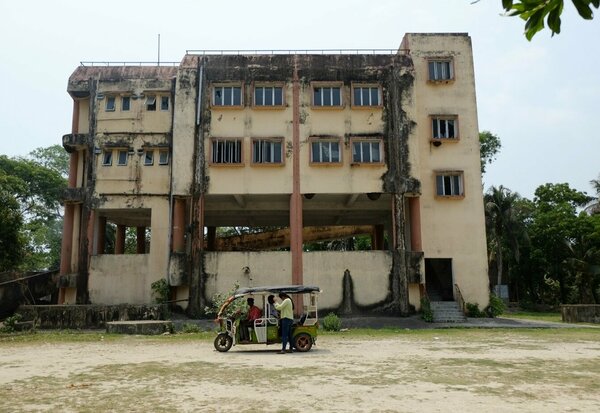
Devastating cyclones
When borders reopened in 2022, Van Bommel wasted no time in heading to the Indian Sundarbans to do field research there after all.
“It made quite an impact to see how much damage climate change had done there,” she tells us. For one thing, the delta region has been hit by several devastating cyclones, flooding the land with the salt water that surrounds it, which is bad for agriculture. Inhabitants are even worried they may have to move.
According to Van Bommel, the situation in this region is a good example of the social injustice of our energy systems. “These people have benefited from it the least, but they’re already being hit hard by climate change.”
Recently, the region was given access to electricity from the central power grid for the very first time. The PhD candidate looked at how this influences their resilience to climate change.
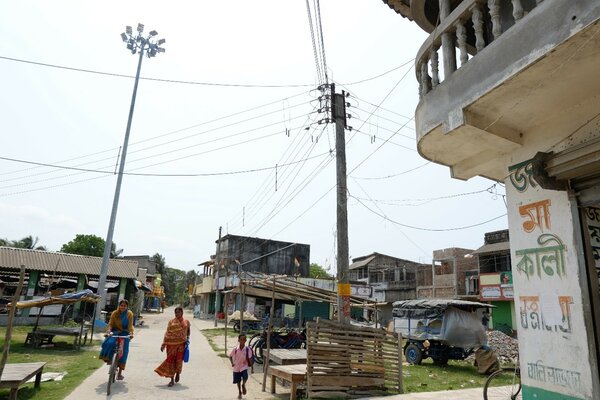
“It’s an above-ground network, so if a storm hits, the inhabitants are sometimes out of power for weeks,” she says. “You could compensate for this using alternatives such as PV panels, so decentralized energy generation could be a good solution. But because there’s a government-funded power grid now, there are no more investment opportunities.”
As far as the government is concerned, the problem has been solved, but the power grid isn’t all that reliable. “One of the problems when it comes to fairness is that people aren’t consulted when decisions are made,” says Van Bommel.
A dream come true
It wasn’t only a special project to work on, but she also profited a lot from it on a personal level. For one thing, she’s now a member of an energy community herself, namely meer&deel in the Eindhoven district of Vredeoord.
“I got acquainted with it through my research, and once I had read up on the project a little bit, I told my boyfriend: ‘I want to live here as well’.”
In this collective private commissioning project, which consists of forty households, residents make a plan on how they want to live together, paying a lot of attention to sustainable construction, shared mobility (such as shared cars and cargo bikes), and gardens and greenery, but also to energy management. “We just moved there, so everything is still very much under development,” says Van Bommel.
One thing they have done already, is set up a communal heating system, with solar collectors on the roof (see main photo).
“Those are pipes that have water running through them that can heat up to as much as ninety degrees Celsius if they’re directly in the sun or if it’s warm outside. That water flows into a large underground tank, where it’s stored. A heat pump then distributes the heat to all of the houses,” she explains.
She’s very happy that alongside her research she’s now actually involved in setting up such a system. “My dream has always been to live sustainably, and this project has made that dream come true.”
Source: Cursor
Media contact
Latest news
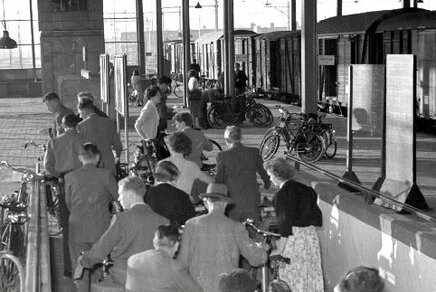
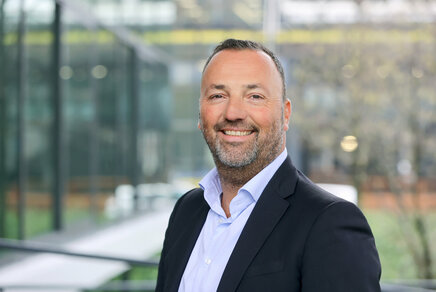
![[Translate to English:] [Translate to English:]](https://assets.w3.tue.nl/w/fileadmin/_processed_/e/0/csm_BvOF%202019_1031_BHF%20license%20TUe%20ILI%20copy_8a50884392.jpg)